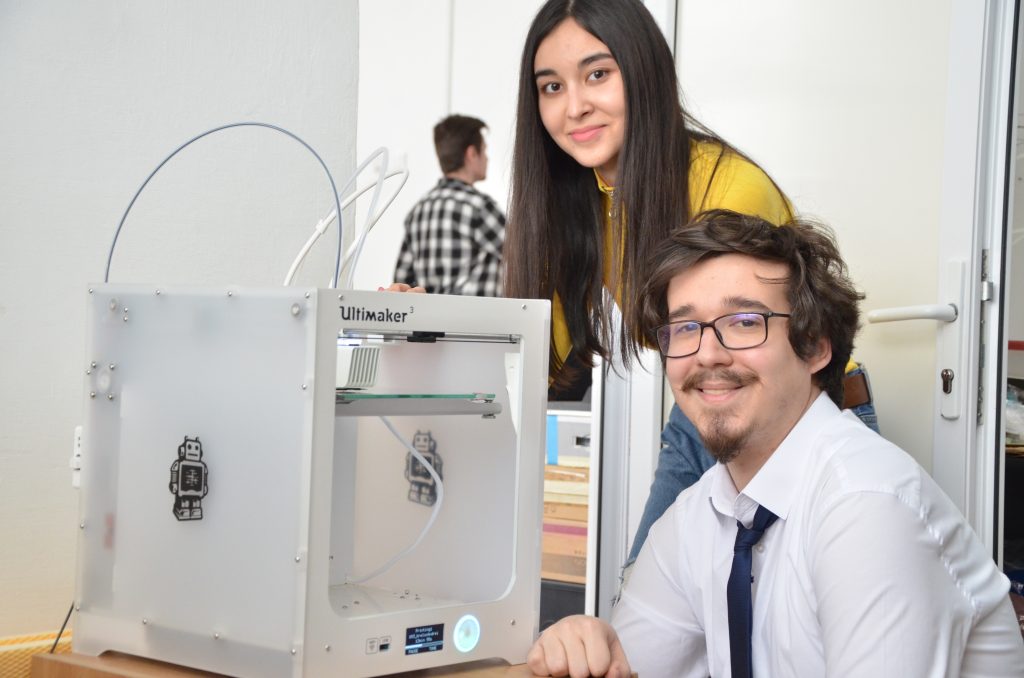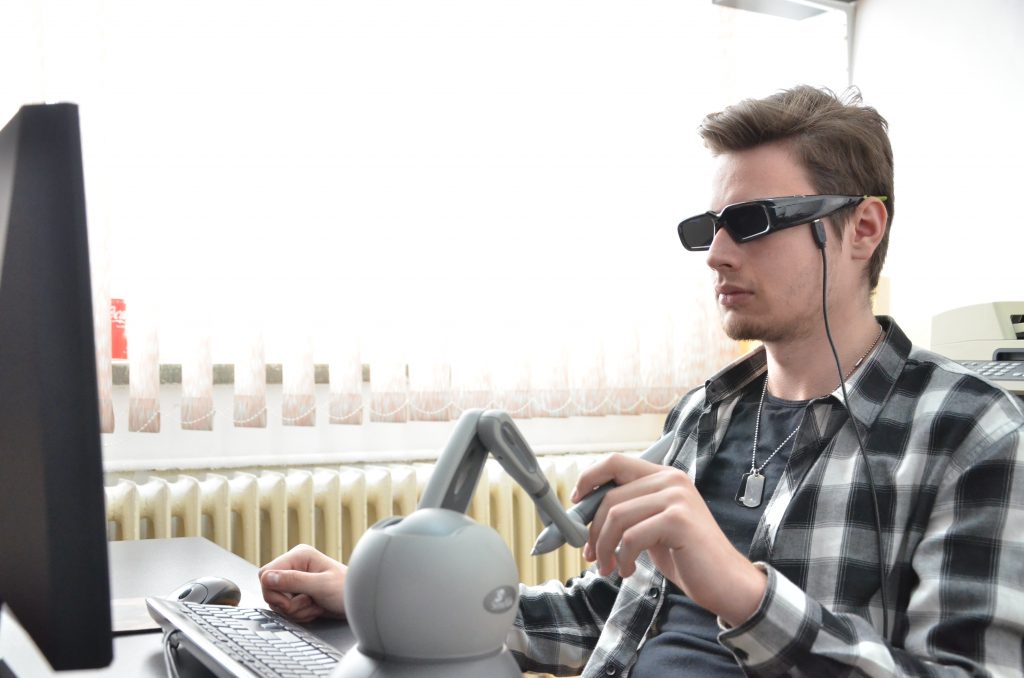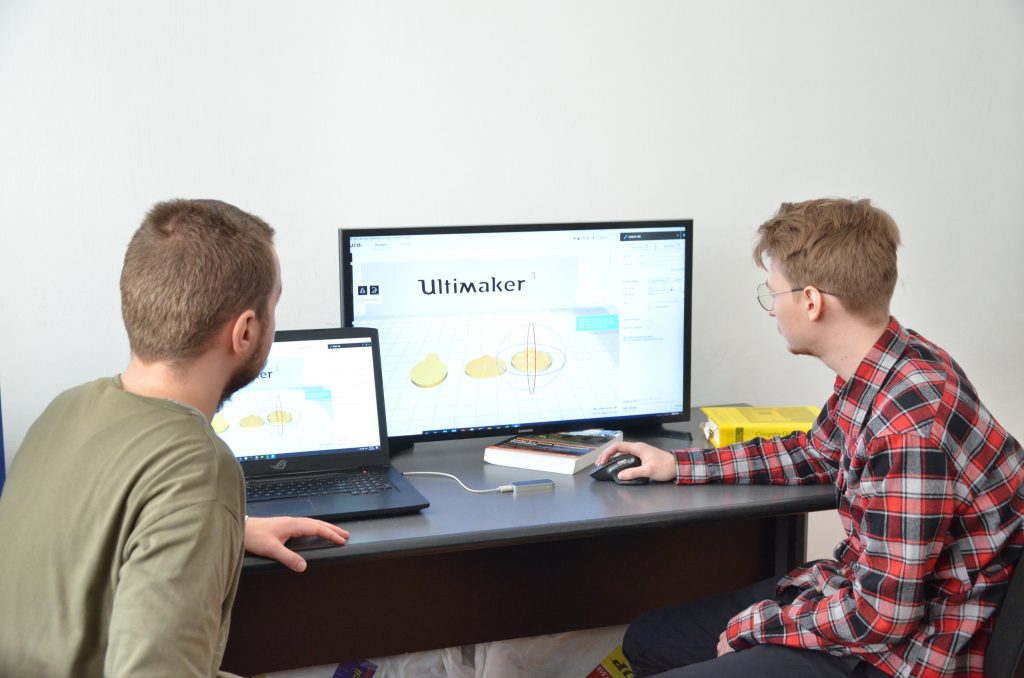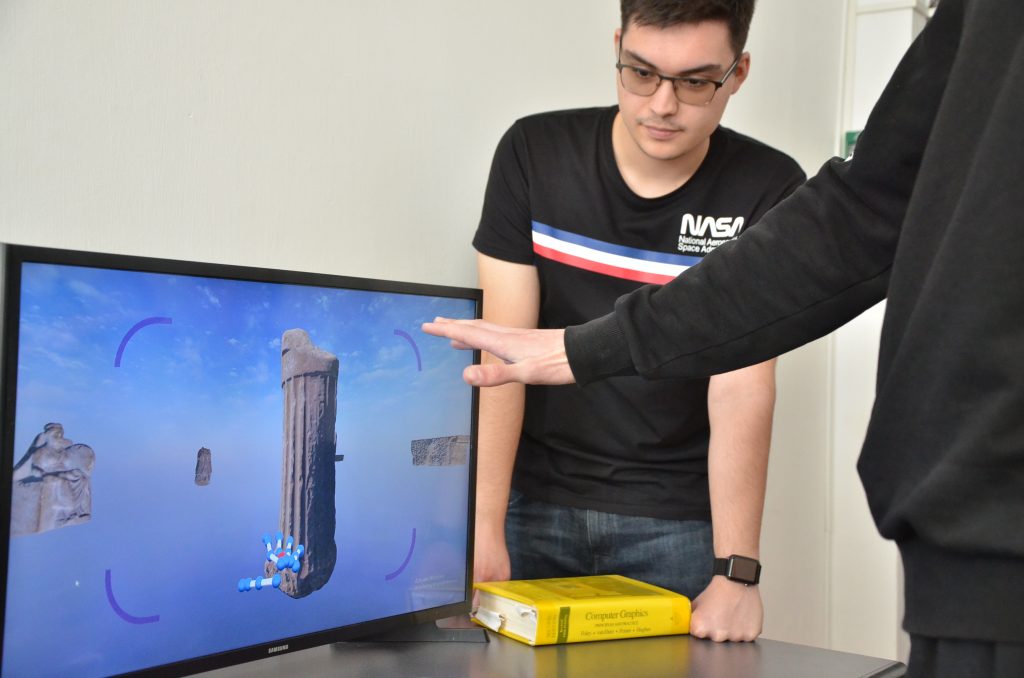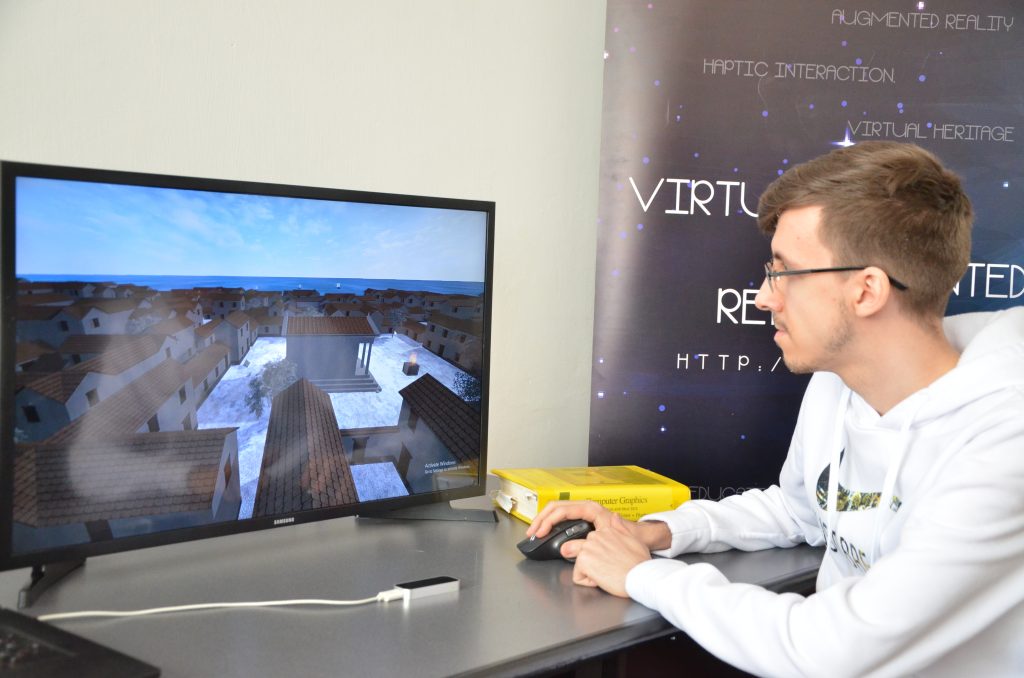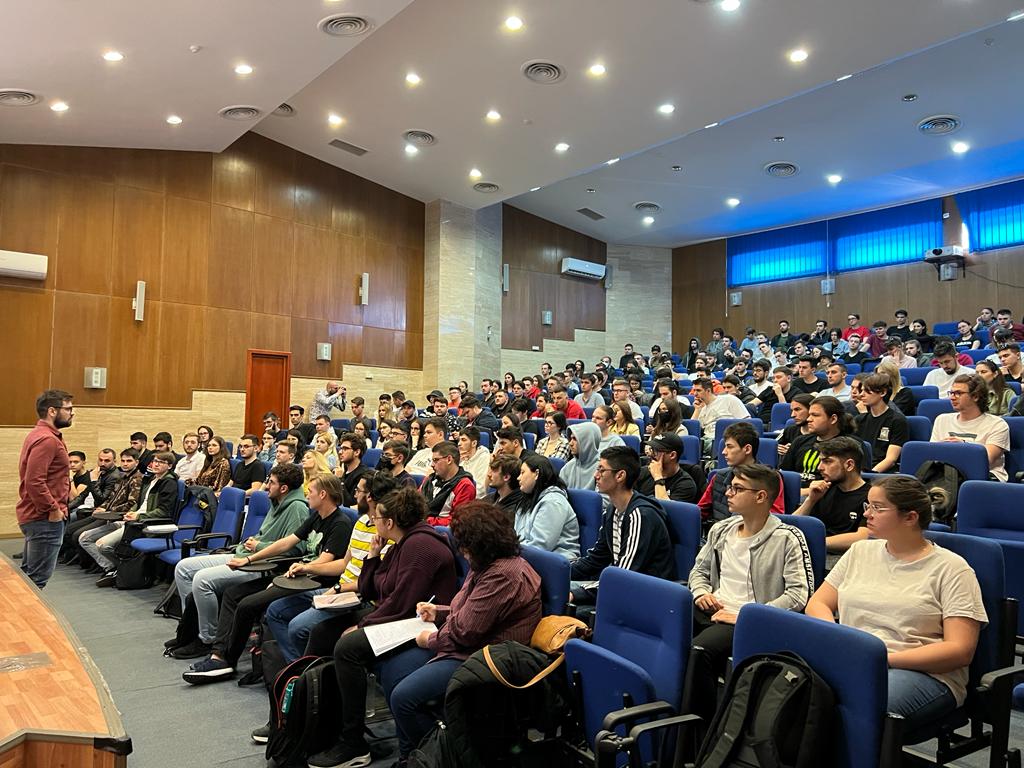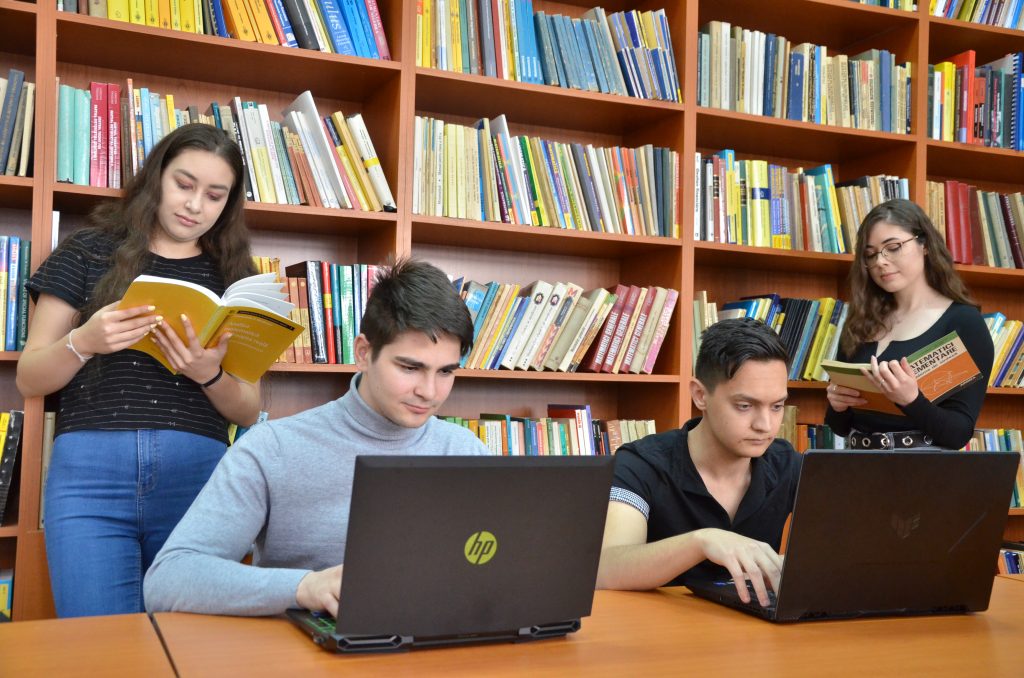The Master program in Advanced School Mathematics is a professional master program in Mathematics. It continues the master program in Didactic Mathematics, which has been operating in the Faculty of Mathematics and Computer Science since 2001. The master program in Advanced School Mathematics provides the necessary basic training for a math teacher who wants to work in pre-university education. The subjects offered by the curriculum cover a wide range of topics, focusing on deepening the topics taught in high school, including algebra, analysis and geometry for teacher training and teaching mathematics for high-performing students. It ensures a flexible and natural connection between various mathematical subjects studied in university and the teaching of school mathematics, using modern techniques such as computer-assisted instruction. The courses offered by this program cover all the subjects that a middle school or high school teacher has to teach. In addition, courses in applied mathematics in related fields, problem-solving techniques in school mathematics, and the training of practical skills in using the computer in the classroom for teaching and assessment are offered. At the same time, the personal development of the students, the increase of their capacity for independent learning and the desire for continuous training are pursued. Programul de masterat Matematică Școlară Avansată oferă pregătirea de bază necesară unui cadru didactic ce doreşte să lucreze în învățământul preuniversitar.
The program aims to prepare young graduates of undergraduate programs to become teachers with a solid scientific background and to ensure their familiarization with new teaching methods and means that result in increasing students' interest in mathematics. The program also supports pre-university teachers to modernize their methods of teaching mathematics and to deepen the subject taught in the classroom. The graduates of this program are employed as teachers of mathematics in schools and high schools in Constanţa County and neighboring counties.
-
The master's program Cyber Security and Machine Learning in the field Computer Science aims to train specialists in two important areas of informatics: Computer/Cyber Security and Machine Learning.
The program aims to create highly trained specialists in ensuring the protection of computer systems and information systems, data protection, computer network administration, specific software development and the development of Artificial Intelligence Systems for various application areas, using the latest technologies in the field of Machine Learning.
Mission
The Cyber Security and Machine Learning (CSML) Master’s programme aims to prepare graduates in two important/hot topics for today’s society: Computer/Cyber Security and Machine Learning. The program is addressed to graduates of the Faculty of Mathematics and Computer Science, as well as graduates from specializations such as Automation and Computers, Physics, Economic Informatics or Engineering.
The graduates of this Master’s program will be specialists in the protection of computer systems, data protection, secure administration of computer networks on the one hand, as well as Machine Learning practitioners that can build robust and efficient algorithms for automatic data extraction and data analysis, with the use of specific technologies. CSML graduates will be capable of working both in companies and software development departments, in research or in the higher education.
The CSML Master’s curriculum focuses on fundamental elements in the two branches that provide the name of the program. Cyber-security is a field of maximum importance in the digital society we live in. The CSML Master’s students will gain specific expertise in cryptography, detection of cyber attacks and how to design resilient applications, by means of highly focused courses (such as Applied Cryptography, Malware analysis, Security of web applications or Security of databases). From a researcher’s perspective, Machine Learning is at the jonction of Artificial Intelligence and Mathematics by means of Statistics, with a strong Optimization component. Machine Learning algorithms and techniques are at the core of today’s revolutionary results in various branches of science. At the CSML Master’s, students are taught fundamental algorithms in Machine Learning and techniques specific to Data mining, with applications that span across various domains, mainly in Cyber-security, but also in healthcare or form recognition.
General Objectives
•Correlation of the master's degree programs of the Faculty of Mathematics and Informatics with those of the other similar faculties , both in the country and abroad
•Development of knowledge specific to the field of cyber security
•Development of students' cognitive, application-practical, communication and relational skills
•Developing students' research skills
•Development of attitudes corresponding to the ethical norms in the field
Specific Objectives
•Acquiring practical skills in innovative fields in the field of the Computer Science
•Acquiring thorough knowledge in the field of Cyber Security
•Acquiring thorough knowledge and skills in the field of Machine Learning
•Use of software technologies specific to the field of Information Security, respectively Machine Learning
•Constantly updating professional knowledge, in relation to the latest developments in the field
•Carrying out an interdisciplinary and transdisciplinary approach, by applying computer knowledge in related fields of activity
| 1st year | 2nd year |
| Security of databases
Machine Learning Advanced Programming Elements Specialization Practice Distributed Networks Systems Data Mining Advanced Database Systems Etics and Academic Integrity |
Applied Criptography
Semantic Web and Ontologies Specialization Practice Security of web applications Software security: Documentation and Research Activity for Dissertation Work Preparing Dissertation Thesis |
| 1st year | 2nd year |
| Malware Analysis
Pen Testing Cyber Security Simulation and Visualization Tools E-Commerce Security Wireless and Mobile Devices Security Programming Applications under OS Linux Cryptography Advanced Techniques |
Form Recognition and Data Search in the Web
Information Technology and Communications Forensics Cyber Security Entrepreneurship Data Mining in Relational Databases Online Threats to Modern Organizations Cloud Computing Architectures |
Languages and technologies
Technologies APIs used in malware analysis, network and system penetration testing software tools, middleware technologies, virtualization technologies, RMI, CORBA, Android application development platforms, wireless technologies, P2P systems, Cloud computing
AlgorithmsMachine Learning algorithms, such as classification algorithms, clustering, regression algorithms, probabilistic algorithms, neural networks, Deep Learning
Programming Languages:: C/C++, G++, C#, Python, Java, SQL, Javascript
Databases Relational Database Management Systems, Database Security Models, Distributed Database Systems, Multidimensional data, analysis, NoSQL, NewSQL, data warehouses
Software security:security measures, network security, mobile device security (Android and IOS), RFID security, IoT device security assessment, distributed systems security
Other activities
The "Ovidius" University of Constanţa has an active partnership with "Titu Maiorescu" University of Bucharest, through which "Ovidius" University students, and especially CSML Master's students, have access to the Virtual Software Testing Laboratory, established and funded by "Titu Maiorescu" University, within a project funded by the European Social Fund. The students of the CSML Master 's programme participate in the realization of the specialization practice activities within the project "Practice internships in the center of excellence in cyber security in the cloud - CyberX", project led by "Titu Maiorescu" University.
We mention the partnership between "Ovidius" University and SAS, the market leader in the field of data analysis. During the Master courses, CSML master's students acquire knowledge and skills to use the software packages provided by SAS, such that the graduates of the CSML master's program will finally obtain double certification from SAS, on the topics of Data Science and Machine Learning.
Perspectives
Graduates of the master's program Cyber Security and Machine Learning can work in the IT field, in specialized IT companies, as well as in companies in various fields of activity, to ensure their computer security needs. Among the positions for which CSML masters graduates are qualified, we specify Computer Security Consultant / Analyst / Administrator, Cyber Security Auditor, Cyber Security Expert, but also Data Analyst, Machine Learning Engineer or Computer Systems Programmer. The qualification most suitable for the graduated is Specialist in computer systems security procedures and tools (COR 251402).
The master's degree program Multi-modal Distributed Virtual Environments in the field of COMPUTER SCIENCE aims to improve students by providing the necessary knowledge to design and develop multi-modal virtual environments with direct applicability in areas such as education, training, edutainment, research and more.
Mission
The program aims to create highly trained specialists in the design and implementation of virtual environments through the technologies of the third millennium, possibly adapting existing technology and stimulating the invention of new technologies.
Last but not least, the aim is to prepare master's students in order to capitalize on innovation, by involving them in research projects in partnerships with other universities in the country or abroad and with profile companies, developers of high complexity products.
General Objectives
•Connecting the bachelor study program to the education and research systems of the other universities from Romania and abroad.
• Development of a functional system of knowledge specific to the IT&C field in accordance with the structure of the contents involved in the curricula.
• Development of cognitive, application-practical, communication and relational skills.
• Stimulating students' performance and research activity.
• Development of a system of attitudes corresponding to deontological norms and support of the aptitude profile.
Specific Objectives
Cognitive and application-practical objectives
•Ability to use new modeling, information and communication technologies.
•Openness to new and innovative trends in the field by systematically updating knowledge.
•Approaching a multi-, inter- and transdisciplinary approach by making connections between computer science disciplines and other fields.
•Focusing on the structural and procedural connections of the discipline.
| 1st year | 2nd year |
| SOFTWARE DEVELOPMENT
VIRTUAL AND AUGMENTED REALITY APPLIED ARTIFICIAL INTELLIGENCE RESEARCH PRACTICE ADVANCED DATABASE SYSTEMS DISTRIBUTED NETWORKS AND SYSTEMS DESIGN MODELS AND FRAMEWORKS RESEARCH PRACTICE ETHICS AND ACADEMIC INTEGRITY |
ADVANCED SYSTEMS FOR ANALYSIS, RECONSTRUCTION AND IMAGE PROCESSING
MULTIAGENT SYSTEMS RESEARCH PRACTICE BEHAVIORAL MODELING AND SIMULATION IN VIRTUAL ENVIRONMENTS OPTIMIZATION ALGORITHMS IN DISTRIBUTED SYSTEMS RESEARCH PRACTICE |
| 1st year | 2nd year |
| ARCHITECTURES FOR AUTONOMOUS COMPUTER SYSTEMS
DATA ANALYSIS AND STOCASTIC MODELING INTRODUCTION TO THE ALGORITHM OF DISTRIBUTED APPLICATIONS AUTOMATIC LEARNING MULTIMODAL HUMAN-COMPUTER INTERFACES MULTIMEDIA SYSTEMS AUTOMATIC NATURAL LANGUAGE PROCESSING |
UBIQUITOUS INTERFACES
SEMANTIC WEB AND ONTOLOGIES FORM RECOGNITION AND DATA SEARCH IN THE WEBSITE VIRTUAL LEARNING / VIRTUAL TUTORING MANAGEMENT OF VIRTUAL COMPUTING MEDIA AND INTERNET SERVICE PLATFORMS |
Other activities
Summer schools (http://creative.cerva.ro), conferences/workshops (https://creative.cerva.ro/workshop), research projects (http://cerva.ro)
Programming languages and technologies
Modeling UML, software process models (RUP, Agile, etc.), information systems / software models, intelligence modeling, expert systems, architectural models of autonomous systems, distributed systems, neural networks, navigation and interaction metaphors in virtual environments
Languages Graphic modeling languages and APIs (VRML / X3D, OpenGL, DirectDraw / Direct3D, Java3D, AReVi, AreViJava, OpenHaptics, ARToolKit), Python, Android programming
Technologies Graphic modeling software tools (3DS Max, Poser, Blender, ArenaMotionCapture, GoDOT), JSF, frameworks and APIs for multimodal interfaces and haptic systems, technologies for creating hypermedia content.
Algorithms : genetics, clustering, etc
Design models : fundamental, creative, sharing, structural, behavioral, competitive
Perspectives
The graduate of the master's degree program Distributed Multi-Modal Virtual Environments has the IT Project Manager (COR 251206), Software System Engineer (COR 251204) qualifications and will work mainly in the field of IT (software development, networks, security, artificial intelligence, virtual reality and augmented, gaming, etc.).
Among the employers of our graduates we can mention, without being exhaustive, the following companies (in alphabetical order): AD-FIRE Youth Group SRL, S.C. BLUECODE IT CONSULTING & DEVELOPMENT S.R.L., CORNERSTONE TECHNOLOGIES S.R.L., Electronic Arts, F5 IT, Inspectoratul Școlar Județean Constanța, ORANGE ROMANIA S.A., SENIOR SOFTWARE, UBISOFT, VAUBAN – INETUM ROMÂNIA, XPLORERS SRL- LOGISCOOL.
